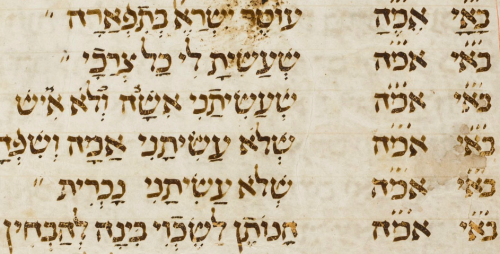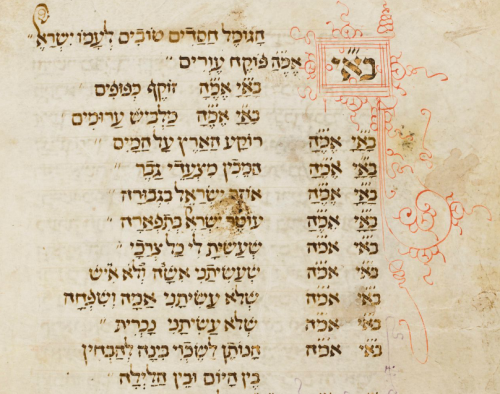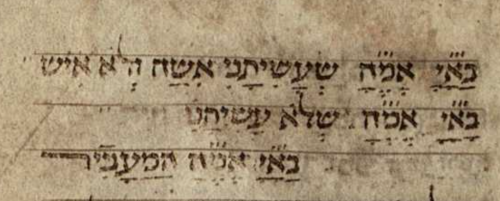jewishhenna:jewishhenna:“Blessed are You, G!d, Ruler of the Universe, Who has made me a woman and no
jewishhenna:jewishhenna:“Blessed are You, G!d, Ruler of the Universe, Who has made me a woman and not a man.”— A woman’s morning blessings in 15th century Italy. That’s right: in Renaissance Italy, Jewish women gave thanks every day that they were women and not men. Amen! In current Orthodox liturgy, men say “Who has not made a woman” while women say “Who has made me according to Divine will.”First prayerbook: Ferrara, Italy, 1471, in the JTS Library.Second prayerbook: Ferrara, Italy, 1480, in the National Library of Israel.Bringing this back because I just came across the digitized manuscript that contains the third attested example of this formulation! This manuscript, MS ROTH/32, is held in the Cecil Roth collection at the University of Leeds, and was written in southern France in the 14th century. It is a vernacular translation of the prayerbook into the Judeo-Provençal language known as Shuadit (i.e. a Jewish dialect of the Provençal Occitan language). It was most likely a wedding gift to someone’s sister, since the title page contains the blessing to Rivqah from her family, Genesis 24:60: “O my [sic] sister, may you become thousands of ten thousands.”In this manuscript, the morning blessing under discussion is translated as:Benedich Tu Sant Benezet nostre Diew rey dal segle ke fis mi fena.Blessed are you, L!RD our G!d, king of eternity, who has made me a woman.This manuscript was first described in an essay by George Jochnowitz, who was actually featured in this HONY post… At the time, the Ferrara prayerbooks were not known, so this was a completely unattested tradition. We now know that this version of the blessing was found, at the very least, in Italy as well as southern France.Here’s a picture of what it looks like in the Roth manuscript! I’ve added little stars to show where the blessing begins and ends:And here’s the title page! -- source link
Tumblr Blog : darkhei-noam.tumblr.com
#whoaaa#jewish



